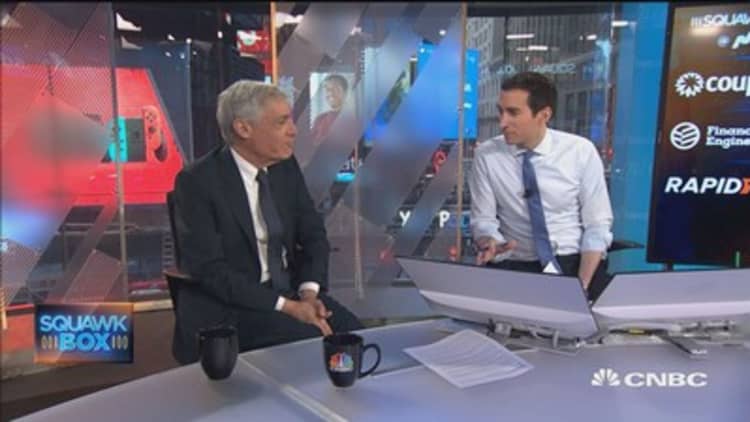
Former Clinton Treasury Secretary Robert Rubin told CNBC on Thursday he does not believe the economy can growth faster than 3 percent in the long term, even with the kind of tax reform promised by President Donald Trump and House Speaker Paul Ryan.
The basic rate of growth for this year and next year is around 2 or 2¼ percent, "though people are lowering their estimates lately," Rubin said on "Squawk Box."
Tax cuts would provide "some stimulus" to get growth to about 2½ percent, added Rubin, co-chair of the Council on Foreign Relations think tank. "Could we get to 3 [percent]? That's a long stretch."
President Trump has said he hopes to boost economic growth to more than 3 percent or even 4 percent.
Rubin also questioned whether the Republican-controlled White House and Congress can deliver on their tax-reform promises. "They have no way to pay for them," he said.
Treasury Secretary Steven Mnuchin told the Financial Times in a recent interview that the White House's timetable for tax reforms is going to slide after setbacks over replacing Obamacare. He called August "highly aggressive to not realistic at this point" for tax legislation on Trump's desk
The polarizing border adjustment import tax provision that's part of the House GOP's overall plan to reduce corporate taxes is " bad policy," Rubin said. "The probability of the border tax happening is remote."
Critics say the border tax would lead to high prices for consumers and hurt U.S. companies that rely on imports, such as retailers. Advocates argue any burden on import-heavy companies would be offset by an increase in the dollar's value due to the policy, thus negating the need for importers to hike prices.
A strong dollar means U.S. companies pay less for imports, but it also makes American exports more expensive.
Like many members of Trump's economic team, including Mnuchin and Gary Cohn, Rubin is also a Goldman Sachs alum.
Rubin began his finance career at Goldman in 1966. He rose through the ranks and was co-chairman from 1990 to 1992.
After leaving the Treasury in 1999, Rubin returned to Wall Street, serving as a board member and senior advisor at Citigroup for a decade.


